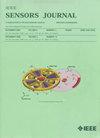用于水下声学网络的优化反馈迭代在线喷泉代码(无需建立阶段
IF 4.3
2区 综合性期刊
Q1 ENGINEERING, ELECTRICAL & ELECTRONIC
引用次数: 0
摘要
在线喷泉码(OFC)是一种新型喷泉码,可根据接收方反馈的解码状态调整发送方的编码策略。通过解码状态的即时反馈,OFC 具有优化编码和低开销等优点,这对于在具有高错误率、长延迟和半双工通信等特点的水下声学网络(UAN)中实现低延迟和高可靠性通信至关重要。本文通过分析水下声学网络的特点和水下声学网络中 OFC 的问题,提出了水下声学网络中 OFC 的三个优化目标。针对这三个优化目标,提出了一种无建立阶段的优化反馈迭代 OFC(OFI-OFCNB),以提高 UAN 的中间解码性能,同时减少编码和反馈开销。同时,考虑到低复杂度要求的接收器通常有有限的缓冲区来存储部分编码数据包,OFI-OFCNB 可动态调整缓冲区占用率,以避免缓冲区溢出。此外,还分析了 OFI-OFCNB 的编码包和反馈包数量、开销、复杂度和缓冲区占用率。分析和仿真结果验证了 OFI-OFCNB 在编码和反馈开销、中间性能和缓冲区占用方面的优越性能。本文章由计算机程序翻译,如有差异,请以英文原文为准。
Optimized Feedback Iterative Online Fountain Code Without Build-Up Phase for Underwater Acoustic Networks
Online fountain code (OFC) is a new type of fountain codes that can adjust the encoding strategy of the sender based on the decoding state feedbacked by the receiver. With the instant feedback of the decoding state, OFC offers advantages such as optimal encoding and low overhead, which are crucial for achieving low latency and high-reliability communication in underwater acoustic networks (UANs) with characteristics such as high error rate, long delay, and half-duplex communication. In this article, three optimization objectives for OFC in UANs are proposed through analyzing the characteristics of UANs and issues of OFC in UANs. Aiming at the three optimization objectives, an optimized feedback iterative OFC without build-up phase (OFI-OFCNB) is proposed to improve the intermediate decoding performance while reducing the coding and feedback overhead for UANs. Meanwhile, considering that the receivers with low-complexity requirements usually have limited buffer sizes to store partially encoded packets, the OFI-OFCNB dynamically adjusts the buffer occupancy to avoid buffer overflow. In addition, the number of encoded and feedback packets, the overhead, the complexity, and the buffer occupancy of OFI-OFCNB are analyzed. The analysis and simulation results validate the superior performance of OFI-OFCNB in terms of the coding and feedback overhead, the intermediate performance, and the buffer occupancy.
求助全文
通过发布文献求助,成功后即可免费获取论文全文。
去求助
来源期刊

IEEE Sensors Journal
工程技术-工程:电子与电气
CiteScore
7.70
自引率
14.00%
发文量
2058
审稿时长
5.2 months
期刊介绍:
The fields of interest of the IEEE Sensors Journal are the theory, design , fabrication, manufacturing and applications of devices for sensing and transducing physical, chemical and biological phenomena, with emphasis on the electronics and physics aspect of sensors and integrated sensors-actuators. IEEE Sensors Journal deals with the following:
-Sensor Phenomenology, Modelling, and Evaluation
-Sensor Materials, Processing, and Fabrication
-Chemical and Gas Sensors
-Microfluidics and Biosensors
-Optical Sensors
-Physical Sensors: Temperature, Mechanical, Magnetic, and others
-Acoustic and Ultrasonic Sensors
-Sensor Packaging
-Sensor Networks
-Sensor Applications
-Sensor Systems: Signals, Processing, and Interfaces
-Actuators and Sensor Power Systems
-Sensor Signal Processing for high precision and stability (amplification, filtering, linearization, modulation/demodulation) and under harsh conditions (EMC, radiation, humidity, temperature); energy consumption/harvesting
-Sensor Data Processing (soft computing with sensor data, e.g., pattern recognition, machine learning, evolutionary computation; sensor data fusion, processing of wave e.g., electromagnetic and acoustic; and non-wave, e.g., chemical, gravity, particle, thermal, radiative and non-radiative sensor data, detection, estimation and classification based on sensor data)
-Sensors in Industrial Practice
 求助内容:
求助内容: 应助结果提醒方式:
应助结果提醒方式:


